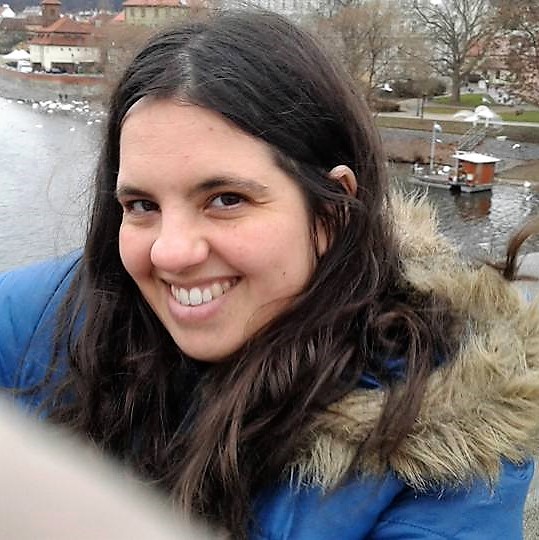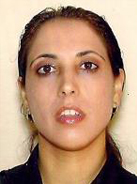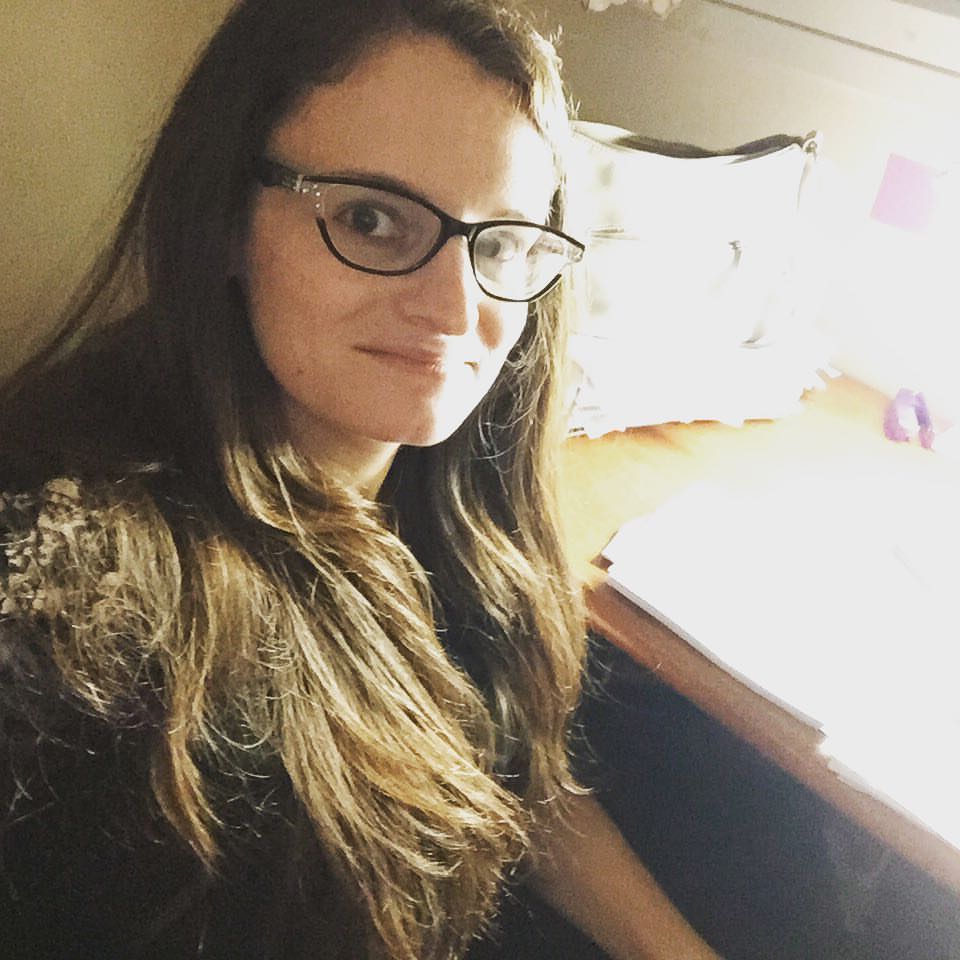

|
Nevet Tachnai
The modes of thinking I developed during my studies allowed me to turn my biggest love - English literature! - into a tool with which to find my place in the Israeli publishing world. I would not have succeeded in this without the dedicated guidance of the excellent lecturers and teaching assistants, each of whom gave me and my friends personal attention - investing in us all along the way. It was evident that the faculty and staff truly cared about the students and about the subjects being taught, and their enthusiasm was contagious, getting the students excited as well.
Shiran Goldshtein
Hiring Administrator, Intel Corporation As part of my work at Intel, I use the academic tools I acquired during my studies in the Department of Foreign Literatures and Linguistics in order to interact with factions of the company, as well as foster my links with costumers abroad. The vast knowledge I acquired in a wide range of subjects was very helpful in my training at work, but it also enriched my leisure time. I have no doubt that the committed professors, the excellent teaching assistants and the fruitful study environment in the department specifically - and in the university at large - all contributed to my professional and personal development.
Shlomi Deloia, PhD
Head of TFI's English Teacher Training Program, Levinsky College of Education As I was completing my PhD disseration at the Department of Foreign Literatures and Linguistgics, I could could fully appreciate the skills for close reading, theoretical analysis and critical writing I gained during my BA and MA studies. Good researching and writing skills provide an excellent background for a variety of career paths in Israel's increasingly international market - not only in professional editing, writing and teaching but also in administration, marketing and communications.
|
|
Maha Alawdat, PhD
English Instructor and coordinator at the ORT Abu Rabe'a Comprehensive School; English Instructor in the English Department at Kaye Academic College of Education; English Coordinator, working for the Ministry of Education, at the Kseifa Abu Rabe’a Junior High School
By getting my MA degree in Literature, I gained numerous benefits as an individual and as a teacher. Studying literature in the Department of Foreign Literatures and Linguistics changed my vision of education. Today, I work at the Ministry of Education, the AMAL network, and Kaye College, training teachers and facilitating their work with literature in the classroom as part of the new Bagrut program. Many of the university courses that I took in the course of my MA degree continue to help me show those I teach the power of critical thinking, collaboration with others and diversity. By next year, more specialized literature teachers will be needed in schools due to the dramatic change in the English Bagrut Curriculum. A degree in literature is helpful in so many ways - I feel privileged to belong to the MA community!
Maha wrote this testimonial after finishing her MA in the Department. She then went on to complete a PhD at Indiana University of Pennsylvania (IUP). For more about Maha's academic path see here.
|

 |
Liron Shokty, PhD
Head of the English Department, Kaye Academic College of Education Linguistics is for people fascinated by language, and by the mere idea of a language. If one wishes to expand and deepen one’s understanding of the mechanisms governing languages, and in this way make them a little less mysterious, then a degree in Linguistics is surely the way to go. A Linguistics degree is ideal for those searching for positons as teachers in academic institutions, public relation positions, writing, and so on. In a rapidly growing meritocratic and educated society it is a very good idea to advance oneself in one's field of studies, for personal interest, personal development, and for an investment in one's future.
Abigail Kantorovich
Modan-Keter Publishing House I have been working at Modan-Keter publishing house for several years now. As part of my job I examine manuscripts (original and translated); send them to readers for evaluation; and then I read, edit, copy-edit/proof-read and follow the books all the way through to their printing and publication. The knowledge and tools I acquired in the department - the introductory courses which gave me historical and literary background and familiarity with the canon and other foundational texts, and the theory courses which sharpened my ability to analyse the text before me and not just read it – are essential to my daily work. I could not approach contemporary literature in a professional fashion without knowing its sources, and I could not write useful and persuasive evaluations of manuscripts without being able to break down the words before me into form and content, enabling me to assess its qualities as objectively possible.
|
|
Hamutal Yellin
Writer, editor and translator When I finished my BA at the Department of Foreign Literatures and Linguistics at BGU I had no doubt in my mind that I was going to do my MA in the same department. And the most important reason for my making that choice was the caring and nurturing staff. Our instructors, teaching assistants and the administrative workers always acted as if they were personally invested in each and every student's success and made themselves, their knowledge, and their time, freely available to us. Today I work as a free-lance translator. During my MA studies I encountered many new literary and theoretical works, but still more importantly new ways of thinking, observing and theorizing, which were not only interesting at the time but still serve me in my work.
|
|
Miri Chertok-Gorodezky
Davidson Institute of Science Education, the Weizmann Institute of Science in Rehovot
I completed both my BA and MA in the Department of Foreign Literatures and Linguistics. Just before finishing my MA in English Literature, I started to work at the Davidson Institute of Science Education at the Weizmann Institute of Science in Rehovot. I am the international liaison for one of the programs, and am also in charge of the donor relations, a job that includes correspondence with individuals and organizations in English, writing applications for donations, reporting to donors, and hosting guests to the Institute. I know that my MA in English was a consideration in hiring me. My academic experience has unquestionably contributed to my success at my job. In the course of two degrees I was trained to think critically. Not only do literary theories have implications in everyday life, but they develop analytical skills. In papers for coursework and in writing a thesis, I learned to make an argument, to put ideas into words in a way that a reader can follow and appreciate. In today's job market the ability to work entirely in English is a priceless skill. Any organization involved in international business needs people who can correspond, write, and speak in English.
|
| |